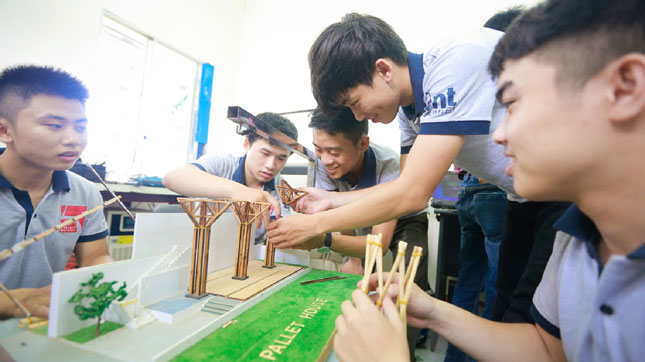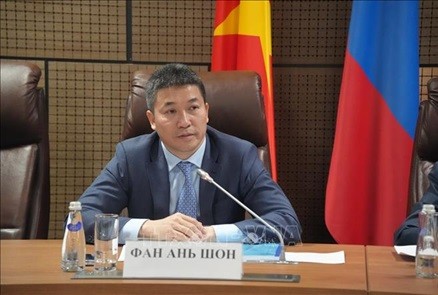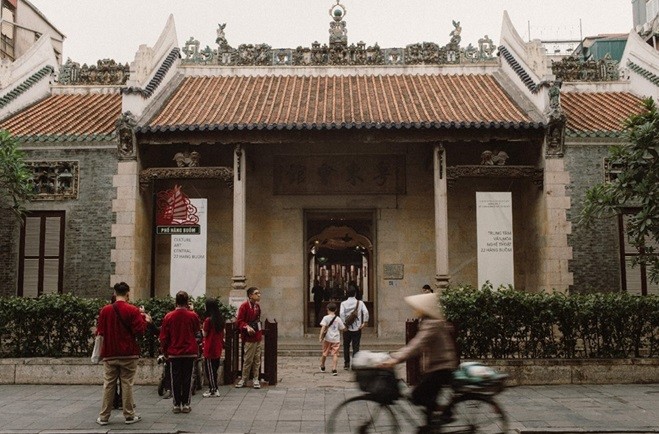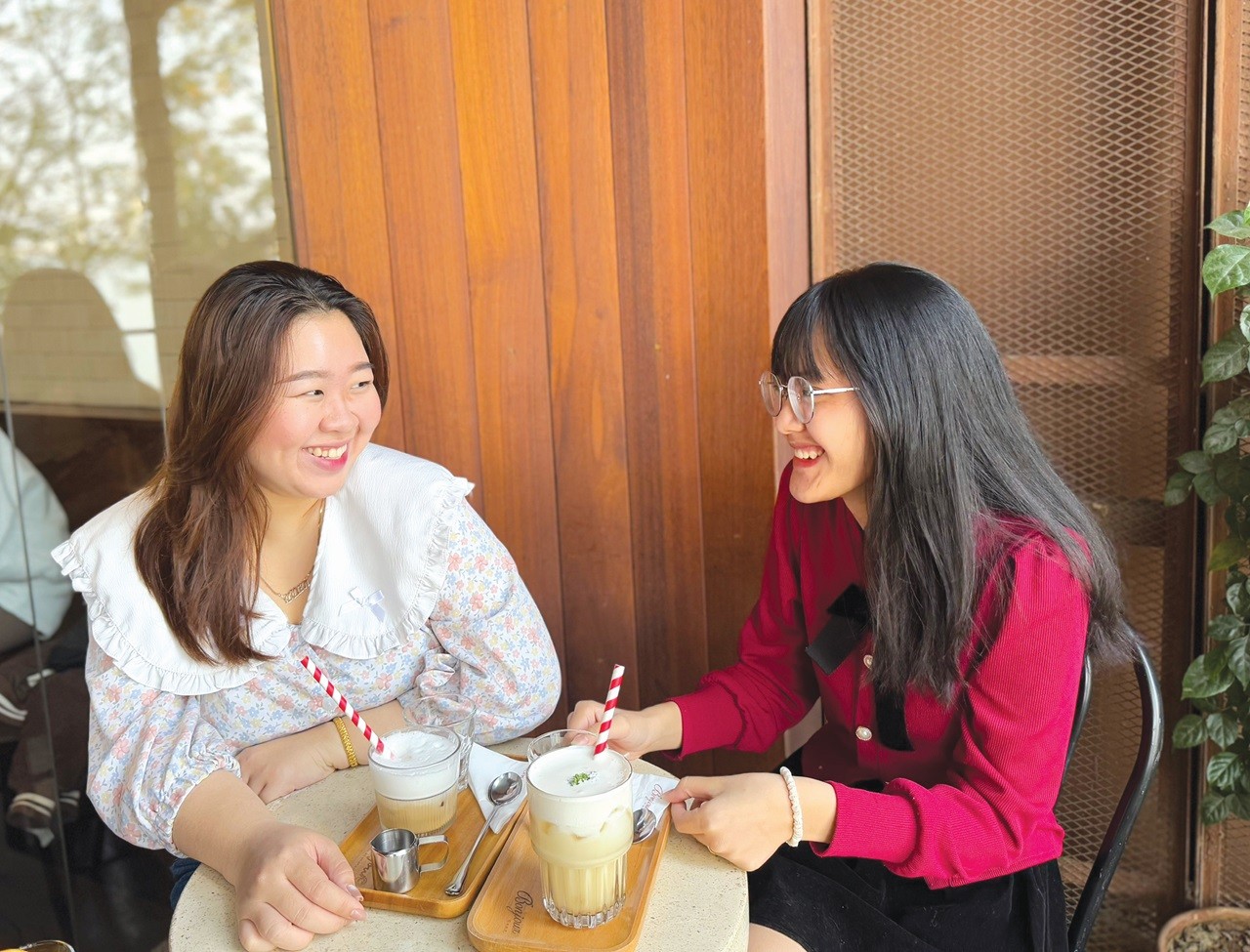Students' scientific activities feature practical significance
| ||
| A group of the city’s University of Science and Technology enthusiastically conducting their research activities |
Co-organised by the city’s Department of Science and Technology and the municipal Youth Union, a city-level scientific and technological creation competition for local students recently took place successfully.
Most notably, many entries received high appreciation from the judging board for their practical significance. In the end, a total of 1 first, 1 second, 2 third and 3 consolations were awarded to outstanding contestants.
Amongst the contestants was Mai Thi Thanh Mai, a talented student from the city’s University of Science and Technology.
Mai successfully conducted her own research study on the methods for extracting proteins from byproducts and waste materials during the production of ‘surimi’ in the city’s Seafood Services Industrial Park.
‘Surimi’ refers to a paste made from fish or other meat. It can also refer to a number of Asian foods that use ‘surimi’ as their primary ingredients. It is available in many shapes, forms, and textures, and often used to mimic the texture and colour of the meat of lobster, crab, and other shellfish.
In reality, the processing of fish involves stunning, grading, slime removal, deheading, washing, scaling, gutting, cutting of fins, meat bone separation and steaks and fillets. In particular, fish waste can be used for the production of various value added products such as proteins, oil, amino acids, minerals, enzymes, bioactive peptides, collagen and gelatin.
Mai’s research study aims to identify effective measures to fully use fish processing waste which provide a potential source of proteins, thereby helping to minimise the negative impacts of the waste on the environmental sanitation.
Mr Tran Van Hoang, the Deputy Director of the Department of Science and Technology, remarked that his agency would continue coordinating with the municipal Department of Science and Technology to enhance the scale and quality of the competition in the years ahead.
Furthermore, the Department will facilitate local students to bring their innovative ideas to fruitions, and to perfecting their brainchild, as well as encourage more businesses to conduct commercialisation activities for highly practical products from the students.
The organisation of such a meaningful competition indeed stimulates more local students to nurture their passion for scientific research activities, and to enhance their creativeness. This, thereby, will promote the scientific and technological applications into production activities and daily life in a more effective manner./.
( VNF/ Da Nang today )
Most read
Recommended
 National
National
Vietnam News Today (Jan. 30): New Visa Exemption Policy Expected to Give a Boost to Vietnam’s Tourism Industry
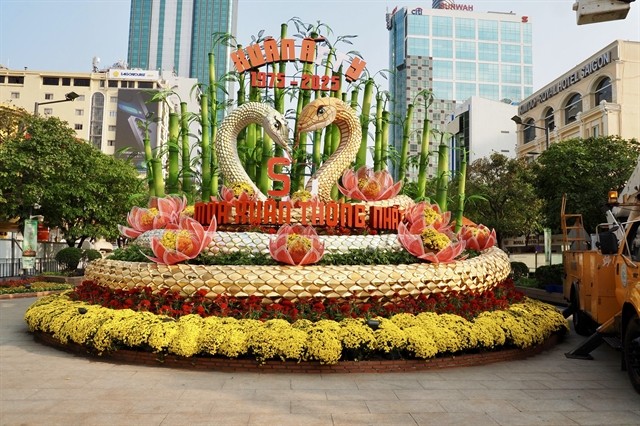 National
National
Vietnam News Today (Jan. 29): Foreign Ambassadors Reflect on Charm of Vietnamese Tet
 National
National
Party chief extends Tet greetings to Hanoi authorities, residents
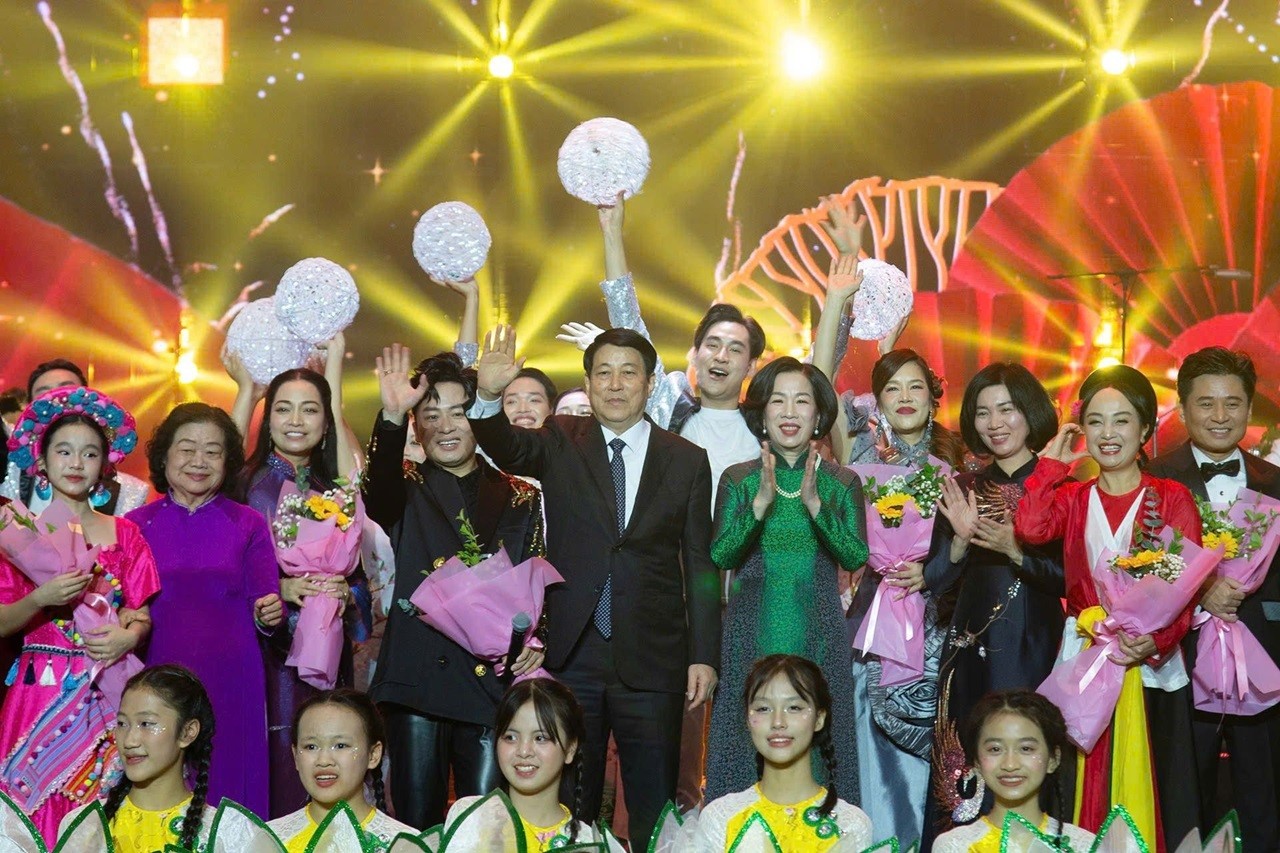 National
National
State President Luong Cuong extends Lunar New Year greetings
Popular article
 National
National
Vietnam News Today (Jan. 28): Russia Ready to Expand Cooperation in New Energy Areas with Vietnam
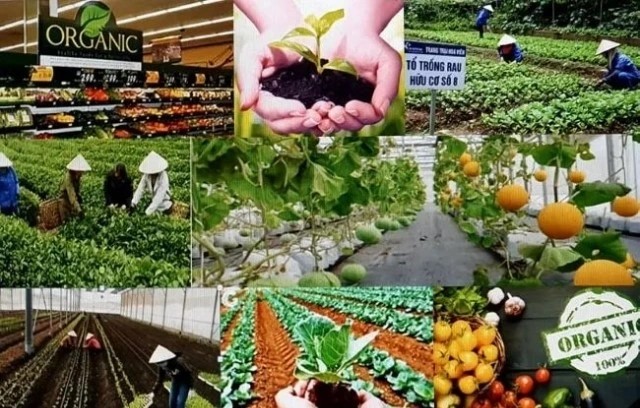 National
National
Vietnam News Today (Jan. 27): Nordic Green Transition Creates New Opportunities for Vietnamese Businesses
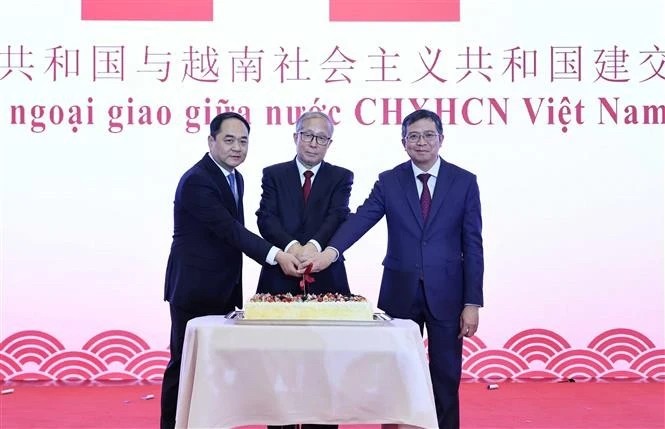 National
National
Vietnam News Today (Jan. 26): Vietnam, China Celebrate 75 Years of Diplomatic Relations
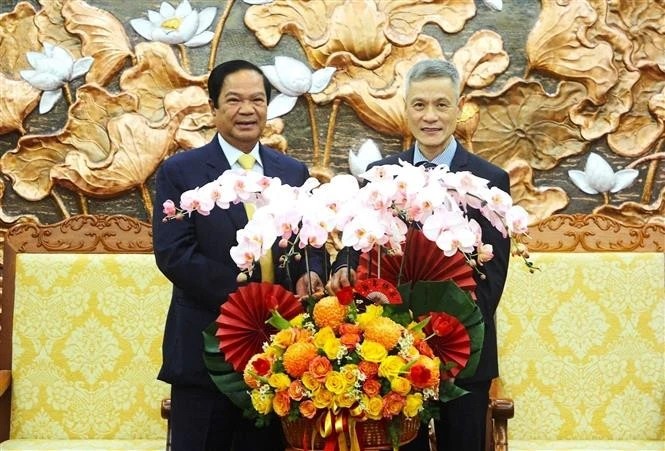 National
National

